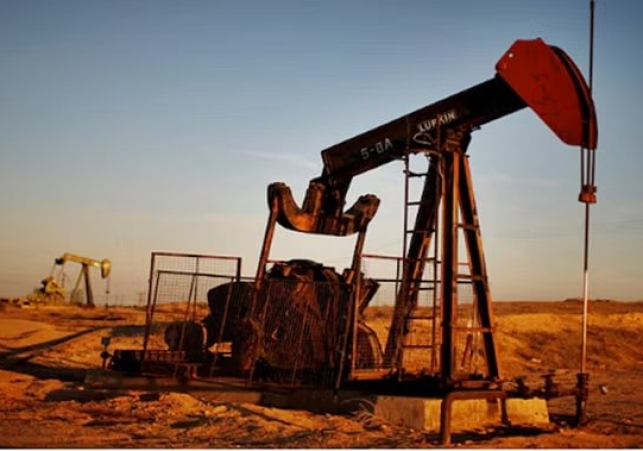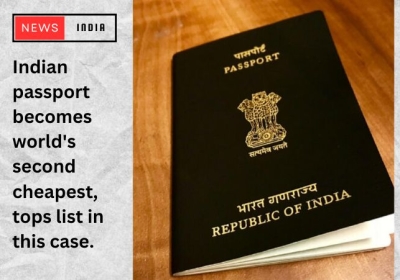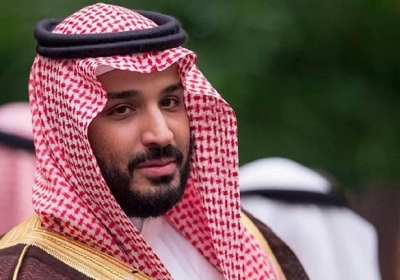Oil Prices: Rise in crude oil and gold after Hamas attacks on Israel, is this an alarm bell for the world?
Oil Prices: Analysts believe that the attack on Israel is not likely to have a direct impact on the supply of crude oil. Israel, despite facing regional turmoil, continues to operate two oil refineries with a combined capacity of 300,000 barrels per day (bpd), while Palestine produces no oil.
Geopolitical tension in the Middle East has reached its peak after Hamas attacked Israel. Meanwhile, crude oil prices have jumped 4.5 per cent to $ 87 per barrel. This is in contrast to the eight per cent decline in oil prices last week. Hamas' attack on Israel has raised alarm bells in the global oil market. This is due to the region's importance as a significant oil producer and export centre.
However, analysts believe that the attack on Israel is not likely to have a direct impact on the supply of crude oil. Israel, despite facing regional turmoil, continues to operate two oil refineries with a combined capacity of 300,000 barrels per day (bpd), while Palestine produces no oil. Therefore, the region can tolerate limited immediate disruption in oil production and distribution.
Market worries increase as geopolitical tensions increase.
Meanwhile, prospects of further increases in geopolitical tensions have heightened concerns in the market. This concern is mainly due to reports that Iran is involved in the attack on Israel. However, on the other hand, several major oil-producing countries, including Bahrain, Iraq, Kuwait, Oman, UAE and Saudi Arabia, have reaffirmed their commitment to keeping oil production adjusted to stabilise the global energy market. These nations play a vital role in mitigating any supply disruptions and keeping oil prices stable in times of geopolitical uncertainty.
If the fight continues for a long time, problems may increase.
Apart from geopolitical tension, there could be other reasons for the sudden increase in oil prices. According to Yardeni Research, "Much will depend on whether the crisis is short-lived or leads to a major war between Israel and Iran." According to Vandana Hari of Vanda Insights, "Israel and Palestine are not major oil-producing countries, but this conflict is taking place across a wide major oil-producing region and could escalate further."
Gold prices also rose by more than one per cent.
Gold prices also rose more than 1% on Monday as dramatic clashes between Israeli and Hamas forces raised the risk of a wider Middle East conflict. There has been a surge in prices due to an increase in demand for safe assets like bullion in the market. Amid solid signals in the international markets, gold rose by Rs 300 to Rs 58,350 per 10 grams in the Delhi bullion market on Monday.
In the last trading session, gold had closed at Rs 58,050 per 10 grams. Silver also rose by Rs 500 to Rs 72,500 per kg. "Gold prices found fresh momentum to continue Friday's gains amid global concerns," said Saumil Gandhi, senior commodities analyst at HDFC Securities. In the global market, gold and silver were seen trading higher at $ 1,848 an ounce and $ 21.70 an ounce, respectively. Navneet Damani, senior vice president of commodity research at Motilal Oswal Financial Services, said that the clashes between Israel and Hamas. The risk of widespread conflict in the Middle East has increased, and demand for safe assets such as gold has increased.
Hardeep Puri said on the Israel issue - that India will deal with it maturely.
Union Minister Hardeep Singh Puri on Monday said achieving the target of net zero emissions by 2070 is "a bit long-term". Under the net zero target, India will switch entirely to renewable energy by 2070. “Our target of net zero emissions by 2070 is something more long-term,” Puri said while addressing the 26th Energy Technology Meeting. He is of the view that India is rushing towards an energy transition. He said the energy transition target for GAIL, Bharat Petroleum Corporation Limited (BPCL) and others is 2035 to 2040. He said that the energy transition in India will first be from fossil-based to clean fuels and then to renewable energy. He also noted that global uncertainty is a dynamic driver for the energy transition.
The area where the action is taking place is the centre of global energy.
On the Israel-Palestine conflict, he said such crises accelerate the energy transition towards biofuels, renewables, etc. Hamas terrorists attacked Israel on Saturday, and since then, fighting has been going on between the two sides in which many people have died. The minister said, 'India will deal with it (Israel-Palestine conflict) with maturity. Prime Minister Narendra Modi's statement is obvious. He said, 'As far as energy is concerned, we should make it absolutely clear that the place where the action is taking place is, in many respects, the centre of global power. We will look into this matter very carefully and move forward.






